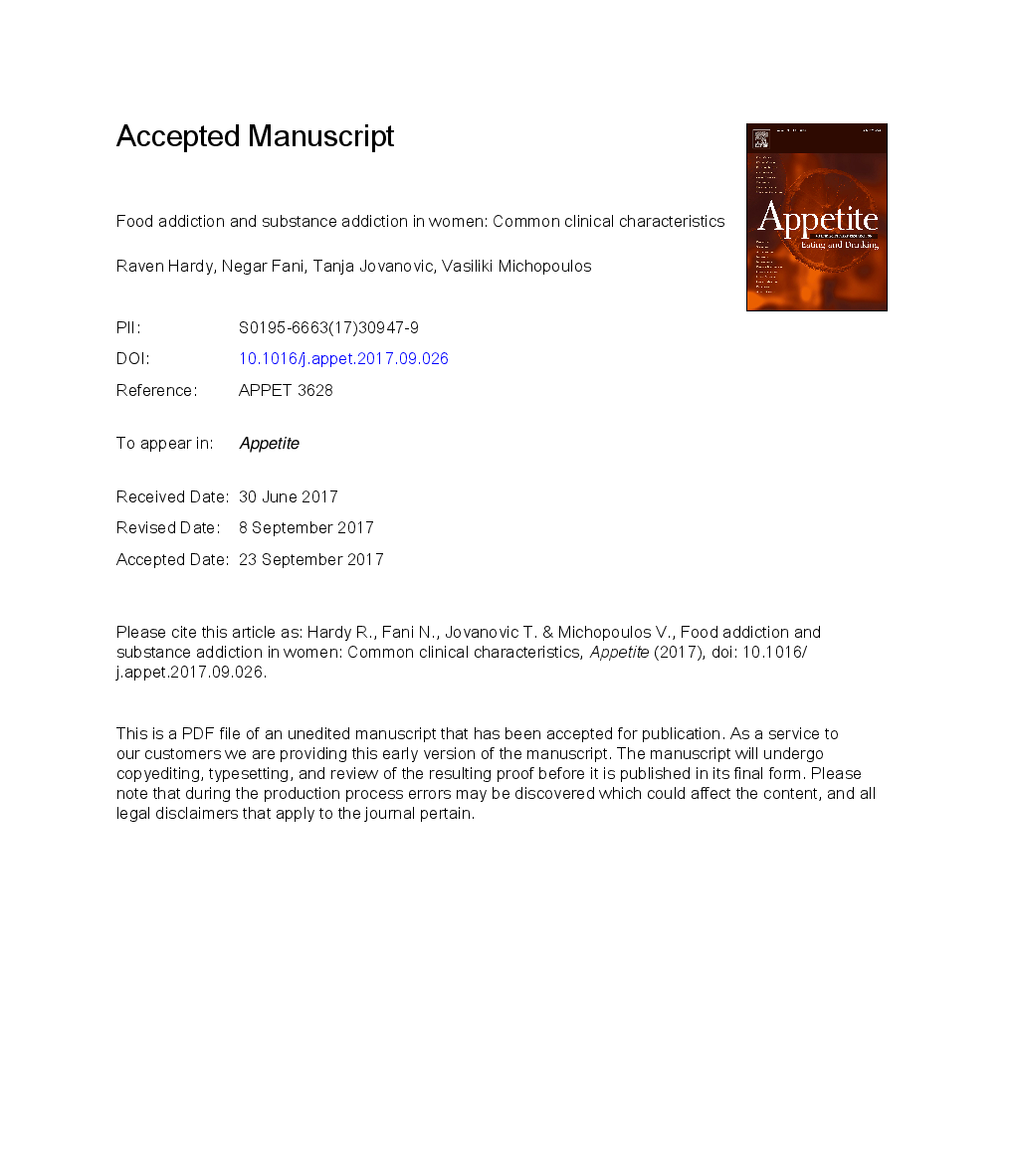ترجمه فارسی عنوان مقاله
اعتیاد به مواد غذایی و اعتیاد به مواد در زنان: ویژگی های بالینی مشترک
عنوان انگلیسی
Food addiction and substance addiction in women: Common clinical characteristics
| کد مقاله | سال انتشار | تعداد صفحات مقاله انگلیسی |
|---|---|---|
| 127749 | 2018 | 20 صفحه PDF |
منبع

Publisher : Elsevier - Science Direct (الزویر - ساینس دایرکت)
Journal : Appetite, Volume 120, 1 January 2018, Pages 367-373
ترجمه کلمات کلیدی
وابستگی غذایی، مقررات احساسی، استفاده از مواد، تروما زنان،
کلمات کلیدی انگلیسی
Food addiction; Emotion regulation; Substance use; Trauma; Women;

